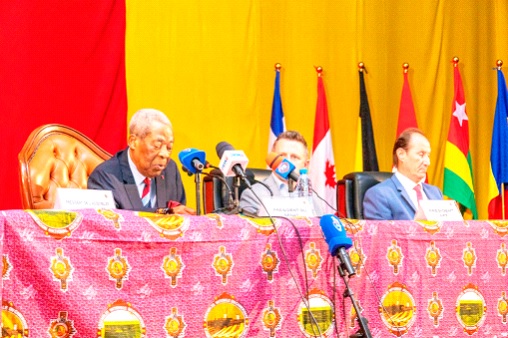Described as fruitful and mutually enriching, the 30th Africa regional assembly of the Francophonie ended with resolutions taken to capitalize on the impact of parliamentary organisations to achieve objectives.
With Cameroon playing host to delegates from over twenty African countries, the floor was dialogue opened for discussions parliamentary diplomacy and the recourse to political dialogue in the functioning of state institutions. While looking at the role of the APF in French Africa, the participants acknowledged that there was much to be gained from sharing their experiences and seeking solutions together rather than working in dispersed ranks. At a time when African countries are undergoing multifaceted challenges like what the interim president of the Gabonese National Assembly described as “a coup of change” talking about his country, it is evident that states need not sweep things under the carpet but rather put them on the table for discussion, as it is through dialogue that lasting solutions can be arrived at.
While discussing the functioning of the APF in Africa, it was decided that there would be a continuation in the revision of the region’s statutes, the result of which are to be presented at the next conference of presidents. According to President of Cameroon’s Senate, Marcel Niat Njifenji, the institutional difficulties facing certain countries in French-speaking Africa show how judicious and topical the choice of concerns regarding electoral transitions or electoral questions; social and security issues has been.
The MPs showed their commitment to contribute through cooperation, solidarity and friendship between their parliaments that the francophonie has an area of influence for political, institutional and diplomatic convergence. As an influence tool for policies that contribute to the realization of ideals shared by countries of the French speaking world, the APF is all about fostering peace, promoting justice and consolidating democracy and development. There is therefore no gainsaying the impact of parliamentary organisations on a continental and even global scale.
Claudette CHIN





